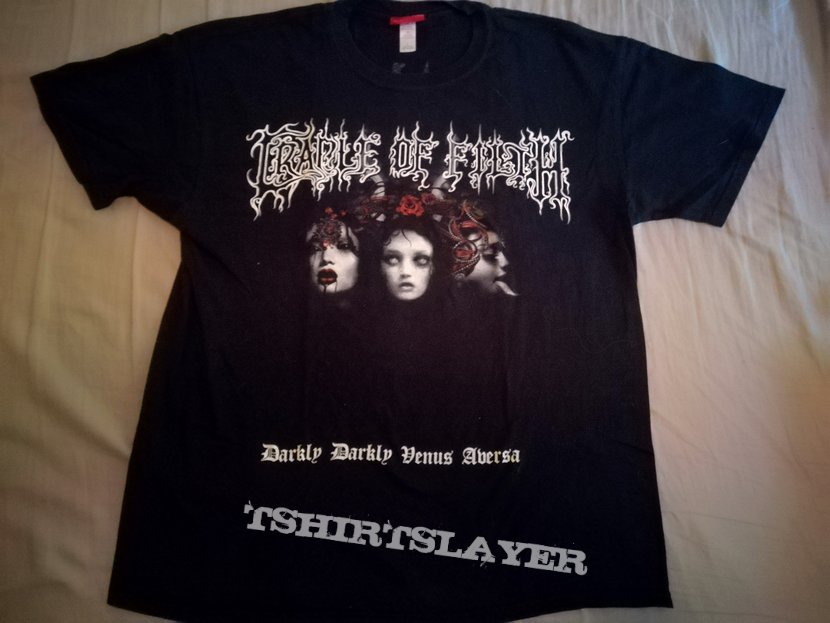
The solos on “The Nun with the Astral Habit” and “Forgive Me Father (I Have Sinned)” are both well-performed and tasteful, but the best ones occur on “Deceiving Eyes” and “Lilith Immaculate”, two tracks that form the heart of the album. The real advancement is the greater frequency of guitar solos, which have not been prominent in the band’s sound until recently. However, the pacing of the album is more consistent than Godspeed, usually holding speed and tone consistent from the end of one song to the beginning of the next.

The compositions are still grand, epic affairs that weave and slither through multiple sections on each song. Musically, the album is extremely strong as well. Some may call it jumbled, but in reality it’s a very precisely, well-composed tale that makes Darkly, Darkly, Venus Aversa the best lyrical album in Cradle of Filth’s discography. Not needing to utilize gore and horror of that album, Filth is instead free to let his perverse imagination run wild in a story that encompasses the Victorian era, Greek mythology, the Knights Templar, and several other historical periods and figures. The completely original story represents some of the most inspired and shocking lyrics frontman Dani Filth has ever written, even eclipsing the grotesque imagery on Godspeed. It centers on the demon Lilith, believed by some to be the first wife of Adam in the Bible, and her return in the modern era as a goddess. Lacking the narrations of longtime contributor Doug Bradley, the storyline instead requires lyrical analysis to decipher. Unlike Godspeed, this record’s concept is not as immediately obvious. Darkly, Darkly, Venus Aversa, another concept album, is a daring release with its own batch of new twists that will delight fans and potentially convert some naysayers. 2008’s Godspeed on the Devil’s Thunder was a stunning return to form, and its intriguing conceptual storyline was remarkably well-executed. Even the band’s missteps ( Damnation and a Day and Thornography immediately come to mind) still have their hidden gems of inspiration and innovation. If a trend becomes popular, they were usually doing it before most others. Looking back at the black metal scene and extreme metal in general, Cradle of Filth has consistently been among the pioneering bands.

But they are one of the few metal bands where the hatred arises not from lack of talent, but from an overabundance of talent and the inability of some listeners to recognize it.

Few bands have attracted as much derision as Cradle of Filth has throughout its career.


 0 kommentar(er)
0 kommentar(er)
